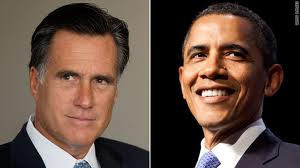 Iowa’s Republican electorate shattered Tuesday night, showing a party establishment under siege and voters unable to coalesce behind any candidate in a deeply flawed field.
Iowa’s Republican electorate shattered Tuesday night, showing a party establishment under siege and voters unable to coalesce behind any candidate in a deeply flawed field.
The big winners in first-in-the-nation caucus state were establishment favorite Mitt Romney, libertarian outsider Ron Paul, and social conservative star Rick Santorum. But the state’s inability to deliver a clear verdict may have taken Romney — the candidate with the most money and strongest machine — one major step closer to the GOP nomination.
The biggest loser: Michele Bachmann. The firebrand Minnesota congresswoman, born in Iowa, briefly rocketed to the top of the GOP field after winning the Ames straw poll over the summer. She was depending on the state’s Christian conservatives to establish her as the main alternative to Romney. Now it’s unclear how long she’ll be able to continue.
Exit polls showed Romney winning major support among voters most concerned with beating President Barack Obama in November. Asked which candidate quality is most important, a plurality of 30% cited the ability to defeat the president. The former Massachusetts governor won almost half of those voters.
Asked to choose which kind of experience is most important — a background in business or government — a majority cited the private sector. Romney, who made a fortune as a venture capitalist, won 35% of those voters — a clear plurality.
Santorum thanks God after Iowa caucuses
Ron Paul projected third in Iowa
Perry to reassess his campaign
Newt Gingrich vows to carry on
In contrast, Santorum’s strength could be found among the 47% of voters who called themselves “very conservative.” The former Pennsylvania senator, who has trumpeted his anti-abortion credentials among other things, dominated this section of the electorate. Santorum also topped the field among the 65% of voters who said they feel positively about the populist conservative tea party movement.
At the same time, Santorum ran best among the state’s influential born-again and evangelical voters. Nearly six in 10 caucus-goers identified with this segment of the electorate, and a plurality of that group went with the former senator.
Reflecting his late momentum, Santorum also ran best among the nearly 20% of voters who didn’t decide which candidate to back until Tuesday.
Some of the biggest headlines of the night belong to Paul, a Texas congressman long seen as occupying the ideological fringes of the Republican Party. Paul — perceived as out of step with the GOP mainstream on a host of economic, social, and foreign policy issues — summoned an army of support from the young, independents, and first-time caucus-goers.
Nearly 40% of the participants in Tuesday night’s contest had never attended a caucus; Paul beat his nearest competitor among this group of voters by 16 points. Roughly one quarter of the electorate was comprised of independents; they broke for Paul overwhelmingly, giving him 48% of their votes.
As for the young, they went for the 76-year-old Paul by one of the most lopsided margins of the night. Over half of voters age 17 to 29 backed Paul, while Santorum ran second best among this group with a distant 23%.
In sum, Romney won the pragmatic establishment while Santorum won the GOP’s most conservative core and Paul dominated the outsiders. Now the race turns to New Hampshire, where Romney owns a second home and a massive lead in the polls.
In terms of overall percentage of the votes, the former Massachusetts governor may not have done any better in Iowa in 2012 than he did in 2008. Questions remain about his ability to win over the bulk of Republicans nationwide. But the splintered Iowa field allowed him to dodge an electoral bullet that effectively killed his presidential hopes four years ago.
With divided Iowa now in the rear view mirror, it is still unclear at best whether anyone can stop him.
CNN

Leave a Reply
You must be logged in to post a comment.